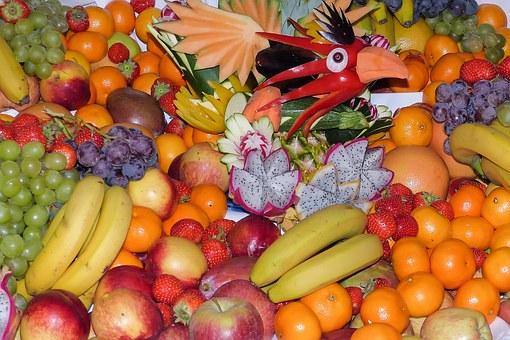Vitamin C Deficiency Impairs Early Brain Development, Study Finds
© HealthyMuslim. See Terms and Conditions

In the latest issue of the scientific journal The American Journal of Clinical nutrition, a group of researchers showed that guinea pigs subjected to moderate Vitamin C deficiency had 30 per cent less hippocampal neurones and markedly worse spatial memory than guinea pigs given a normal diet.
The researchers used guinea pigs because, like humans, the animals cannot synthesize Vitamin C, and can only obtain it via the diet. They therefore speculated that Vitamin C deficiency in pregnant and breast-feeding women may also lead to impaired development in fetuses and new-born babies.
In the first study to reveal a link between Vitamin C deficiency and brain development, the researchers wrote:
"Although a direct extrapolation of this new phenomenon to humans is not currently possible, we found that the relatively high prevalence of Vitamin C deficiency in humans, including infants and toddlers, warrants future clinical studies to clarify whether a similar link to brain development exists in humans,"
"We speculate that the lack of Vitamin C supplementation in high-risk individuals, such as pregnant women and newborns with poor Vitamin C status, could be detrimental to normal brain development and lead to neurologic disabilities later in life."
Study details
The Danish researchers took 30 new born guinea pigs and randomly assigned them to one of two groups: One group was fed a vitamin C-sufficient diet, while the other group was fed the same diet but low in Vitamin C. Levels of vitamin produced deficiency, but were not extreme enough to cause scurvy.
After two months, the animals were tested in a water maze, and hippocampal neuron numbers were measured. It was reported that the Vitamin C deficient animals had a lower number of neurons in the hippocampus, and also performed worse in the maze tests.
Implications
Commenting on the possible reasons for the effects, the researchers noted that the highest concentration of Vitamin C is found in the neurons of the brain. Even at times of low Vitamin C intake, the remaining vitamin is retained in the brain to secure this organ.
Several factors indicate that the neonatal brain, in contrast to other tissue, is particularly vulnerable to even a slight lowering of Vitamin C levels.
Studies with specially engineered mice showed that mouse fetuses that were not able to transport Vitamin C developed severe brain damage, resembling damage found in premature babies and which are linked to learning and cognitive disabilities later in life.
"We speculate that this unrecognized effect of Vitamin C deficiency may have clinical implications for high-risk individuals, such as in children born from vitamin C-deficient mothers," concluded the researchers.
Sources of vitamin C
Excellent food sources of Vitamin C include broccoli, peppers, kale, cauliflower, strawberries, lemons, Brussels sprouts, papaya, chard, cabbage, spinach, kiwi fruit, cantaloupe, oranges, grapefruit, limes, tomatoes, zucchini, raspberries, asparagus, celery, and pineapples.
Consumption of vitamin C-rich foods in their fresh, raw form is the best way to maximize Vitamin C intake. Alternatively, dietary supplementation is another way to boost Vitamin C levels.
Research Paper Details:
P. Tveden-Nyborg, L.K. Johansen, Z. Raida, C.K. Villumsen, J.O. Larsen, J. Lykkesfeldt Vitamin C deficiency in early postnatal life impairs spatial memory and reduces the number of hippocampal neurons in guinea pigs. Am J Clin Nutr, 2009.
Link to this article: Show: HTML Link • Full Link • Short Link
Share or Bookmark this page: You will need to have an account with the selected service in order to post links or bookmark this page.





|
Related Articles:
- Nutrients and Superfoods for Healthy Skin
- Grapefruit Can Promote Healthy Gums
- Low Carbohydrate Diet May Affect Brain Function
- Goji Berries: A Great Superfood
- Book: Curing the Incurable: Vitamin C, Infectious Diseases, and Toxins - Thomas E Levy
- Higher Plasma Vitamin C Levels Reduce Risk Of Developing Type 2 Diabetes
- What Foods Are Good For Your Eyesight?
- Amazing Overall Health Boosting, Brain Powering Omega-3 Flax Oil-Protein Recipe From The Budwig Protocol
- Superfoods For Your Brain
- Dr Linus Pauling, Vitamin C Infusions and Cancer
You must be registered and logged in to comment.
Most Popular
Latest Articles
Popular Subjects
Health, fitness and longevity
Based upon the principles of health
in the Qur'an and Prophetic Traditions.
HealthyMuslim.Com
There are two bounties in which
most people lose out: good health
and free time. Al-Bukhari.























